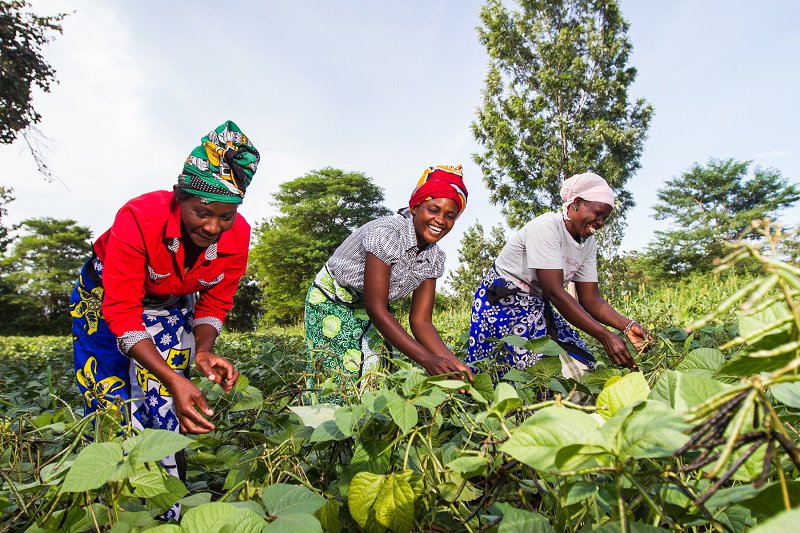In a world where agricultural sustainability is the linchpin of food security and economic stability, the triad of the European Union (EU), the Food and Agriculture Organization (FAO), and Tanzania have forged a groundbreaking collaboration. This initiative is poised to act as a protection against plant diseases and pests, thereby safeguarding Tanzania’s verdant crops and paving the verdant path for burgeoning agricultural trade opportunities.
Agriculture accounts for about one-fourth of Tanzania’s Gross Domestic Product (GDP) and provides employment to over 67% of the population. However, the menace of plant diseases and pests has been a long-standing adversary, often hindering the efforts to achieve optimal agricultural output.
The confluence of expertise from the EU, FAO is a beacon of hope in addressing the perennial challenges faced by Tanzanian farmers. The EU, with its robust policies on agricultural sustainability and a history of supporting agricultural endeavours in Africa, brings a wealth of experience to the table.
The FAO, a specialised agency of the United Nations, brings its technical expertise and global knowledge on food and agriculture. The collaborative initiative with the European Union (EU) and the Food and Agriculture Organization (FAO) is a significant stride towards food security. Here’s a look at how this collaboration facilitates food security in Tanzania:
Enhanced Agricultural Productivity: The core of food security lies in the ability to produce sufficient food to meet the demands of the population. By investing in capacity building, research, and technology adoption, the initiative aims to significantly enhance agricultural productivity. Higher yields and better-quality produce are direct outcomes of improved plant health, which this initiative strives to achieve.
Reduced Crop Losses: Crop losses due to diseases and pests are a major hurdle in achieving food security. The initiative’s focus on developing disease-resistant crop varieties and promoting sustainable pest control methods aims to drastically reduce crop losses, ensuring that a larger portion of the produce makes it from farm to table.
Improved Post-harvest Management: Post-harvest losses are another significant challenge. By promoting better post-harvest management practices and upgrading storage and transportation infrastructure, the initiative ensures that a larger share of the produce is preserved and made available for consumption.
Market Access and Economic Stability: Enhanced market access through trade facilitation and compliance with international trade standards opens up new avenues for income generation for farmers. Economic stability is a crucial aspect of food security as it enables farmers to invest in better agricultural practices and also provides consumers with the purchasing power needed to access food.
Sustainable Agricultural Practices: Promoting sustainable agricultural practices ensures the long-term viability of the farming sector. Sustainable practices lead to better soil health, water conservation, and overall resilience to changing climatic conditions, which in turn contributes to consistent food production and food security.
Increased Income for Smallholder Farmers: The initiative aims to improve the livelihoods of smallholder farmers by providing them with the knowledge, tools, and market access needed to increase their income. Higher income levels enable farmers to invest in improved agricultural practices, which contributes to enhanced food security.
Community Awareness and Education: Community awareness and education on the importance of plant health, sustainable farming practices, and nutritional knowledge are instrumental in promoting food security. The initiative’s community engagement programs aim to foster a well-informed farming community capable of making decisions that enhance food security.
This collaborative initiative encompasses a wide range of strategies aimed at enhancing plant health and, by extension, boosting agricultural trade. However there are some key areas that will need a well tailored approach so as to facilitate the attainment of the collaboration objectives:
- Research and Development: A thrust on research and development to unearth innovative solutions for plant health challenges. This includes the development of disease-resistant crop varieties and environmentally friendly pest control methods.
- Trade Facilitation: Working towards the establishment of sanitary and phytosanitary standards to facilitate the export of Tanzanian agricultural products to international markets. This is crucial for elevating Tanzania’s agricultural trade and ensuring compliance with global trade norms.
- Technology Adoption: Leveraging modern technology for real-time monitoring of plant health and early detection of potential threats. This tech-driven approach will aid in timely interventions, minimizing the loss of crops.
The potential impact of this initiative is monumental. By fortifying the health of crops, the initiative is setting the stage for increased agricultural productivity and, by extension, enhanced food security. Furthermore, by aligning Tanzania’s agricultural practices with global trade standards, the initiative is unlocking new vistas of trade opportunities.
The collaboration between the EU, FAO, and Tanzania is a holistic approach to tackle the multifaceted challenges impeding food security. It’s a commendable endeavor that intertwines enhanced plant health with the broader goal of food security, thereby sowing the seeds for a nourished and economically vibrant Tanzania.
Through these concerted efforts, Tanzania is well on the path of ensuring that its populace has reliable access to sufficient, safe, and nutritious food, today and in the future.

